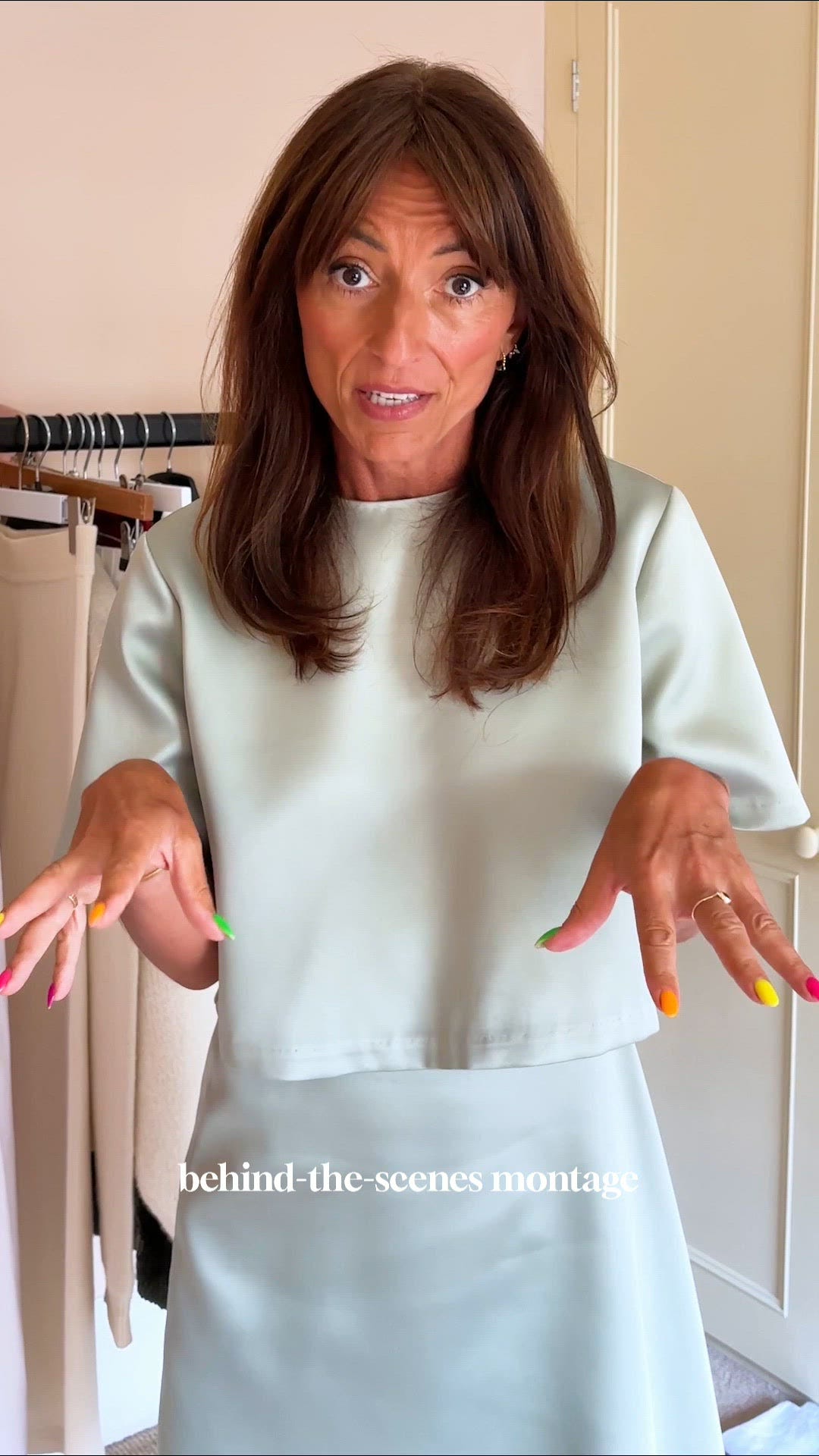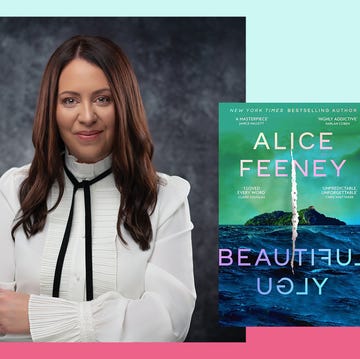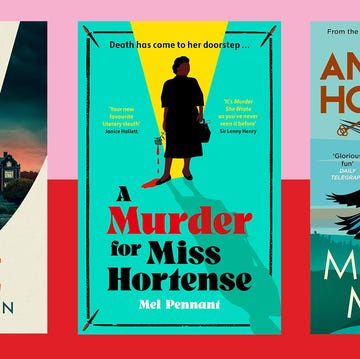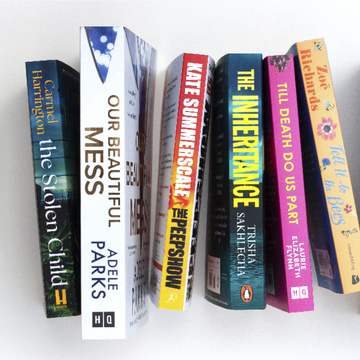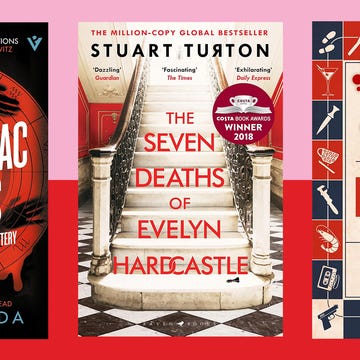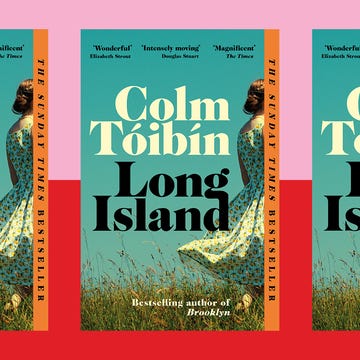There are lots of misconceptions about Richard Osman: that he’s posh, that he went to private school, that he’s always wanted to be famous. In reality, Richard, 50, and his brother Mat (who was in the rock band Suede and is now an author too), were brought up on a council estate in Haywards Heath, West Sussex, by their mother.
Richard went to Cambridge University on a full grant to study politics and sociology, before starting a career in TV production. He was perfectly happy working behind the scenes on TV hits like Deal or No Deal and 8 out of 10 Cats and only ended up presenting by chance after he played the role of quiz master when he and his team were pitching the show Pointless to the BBC.
He has now added another string to his bow with his hugely successful The Thursday Murder Club series. Since the first book was published in 2020, he's sold more than 10 million copies globally. The first book in a new series, We Solve Murders, was published in September.
What to read next
Richard lives in London with his wife Ingrid Oliver, and has two children, Ruby and Sonny, who are both in their 20s.
I’ve always been a crime-fiction junkie and I had various little ideas going around in my head for writing my own. But it was when I was visiting my mum in the retirement village where she lives that I thought, "Hang on, this is the perfect setting for a murder. And these people in their 70s are the perfect people to solve it." The best ideas are often two little things that come together at the same time and won’t let you go. I set myself the discipline of writing every day for a month, just to see what was what. By the time I was 10,000 words in, I couldn’t stop myself.
I found it worryingly easy to get into the mindset of a 70-something woman! Any time I was stuck at all I would go back to Joyce [who narrates the story through her diary entries] and the words would just flow out. Her thought processes are very similar to mine. She goes from happy to sad, minor to major in an instant.
It was nerve-racking being published. These books are definitely the thing that is most reflective of me as a human being and the thing I have put the most work into. It is exposing, but I am 50 and I’m quite comfortable with people knowing who I am. Maybe at 25 I might have felt a bit awkward, but by the time you are 50, you have the personality you deserve. I am happy to show mine off, the good bits and the flaws.
I can’t write for more than two hours a day – some days I can’t write at all. I only get down to it when I have run out of all other options! I try to write a whole chapter, about 1,000 words; that gives me a sense of completion. When people say they love the short chapters in the book, I think that is only because of my short attention span!
My career as a presenter was purely accidental. Any time you pitch an idea to a TV channel you stage a run-through of it. When we did Pointless, I played the person sitting at a desk in the run-through and the BBC loved it. They said, "We need to find someone like Richard to play this role." Well, there is no one more like Richard than me! I thought it would be a minor little show that would disappear after one series. I had just turned 40 and I thought it would be something to tell the grandkids one day, so why not do it? It changed my life completely.
Because I’m 6ft 7, I’m used to people staring at me in the street. I’ve never been in a situation where I’ve been able to walk into a restaurant or get on the Tube without people staring, so it’s quite nice that some people stare at me now because they recognise me.
There’s no rivalry between my brother and I. I’m quite mainstream and he’s very cool. The first few weeks after the book [The Thursday Murder Club] came out and it went absolutely crazy and was number one, it was nice because I could sit with him and it was the first time I’d had that thing he’d had in the 1990s with Suede. We are very different people, but one thing we’ll both do is knuckle down and work hard.
My dad leaving when I was nine derailed me for a while. That trauma never really goes away. Just before he died a few years ago, I got back in touch with him. There was never a big reconciliation, if I am honest. When he died, I wondered if it would hit me, but it didn’t. I make sure to keep my heart open, to make sure I am not kidding myself. He was a perfectly all right guy, he just wasn’t cut out to be a father. I was brought up by the best mum imaginable, so I can’t really complain about my upbringing. I make sure to hug my children and tell them I love them, certainly more than my dad did to me I did lots of therapy, which is the sort of thing someone from my background would never normally do. I thought there was no way they’d be able to fix me, but you sit across from someone wise and they’ve heard it all before; they know how to shift you through. I still go now, very rarely, because I have this incredibly wise person to talk to.
We’re often forced into various boxes by people; they want us to be things we’re not, but I’ve always been quite stubbornly myself. I’m proud of that, but I’m also grateful for that quirk of my personality. I’m not combative at all, so if I’m in a situation where I can’t be myself, I just walk away.
It goes without saying that I’m proudest of my children. They’ve grown into such fine human beings and I’m so proud of them. Professionally, I’m proud of working hard, doing things I believe in, never deviating from that. If you take a cynical decision career-wise, it always backfires on you. I’ve always tried to stick to things I love and believe in.
We Solve Murders by Richard Osman is out now


